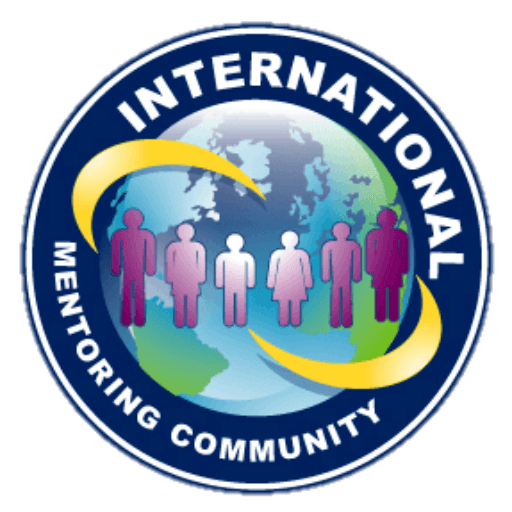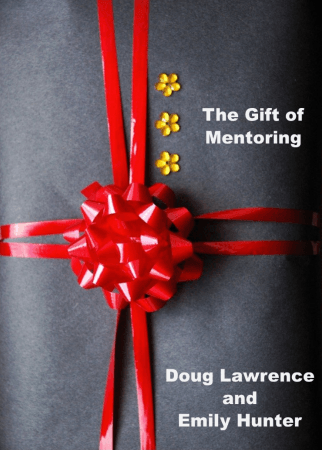Saturday Legacy Stories from Solace Grove #9A
Where Mountains Meet Community, and Every Story Matters
From Desk of Ahmed Mahmoid
As my contribution to the network:
I wanted to explore Grief!
I reached out online to Doug Lawrence, a grief mentor. I asked him for an hour of paid support. Afterwards, he shared the ideas Grief--How to Help outlined below.
I included his book and online links:
When interviewing Doug Lawrence of www.TalentC.ca about grief and the grief process, he said:
1. He found what works for everyone is the ability of a Grief Mentor to listen and hear without judgement. He said, "We all want to tell our story and think that if we did it that was and it worked for us, why would it not work for others. We always need to remember that with Grief each of us grieves in our own way and we need to respect that."
2. "Support groups work wonders as each person has experienced grief in some way shape or form. Each person walks in similar shoes as to what you have or will." He elaborated, this heightens their compassion/empathy for what a person is feeling and doing. You need to remember that their journey is unique just as yours is. "What can evolve out of the support group are smaller or even individual support groups that grow and evolve into weekly or monthly sessions."
3. As I found out with my brother leaving, the grieving process can be one that creates loneliness. "During times that you would spend together with your loved one you now find that this is missing and you need to find the coping skills to continue on the healing journey." As a grief mentor, he suggests the person grieving needs to reach out to those who can support now and/or suggest a path forward to a grief mentor. "As to the grief mentor, it is important to maintain contact, when you commit to someone follow through on that commitment. Period!"
Doug Lawrence: Grief Mentor & Mentoring Expert
Doug Lawrence is the founder of TalentC® and co-founder of the International Mentoring Community, bringing over 40 years of leadership and mentoring experience to his work as a grief mentor and mental health advocate.
A retired Royal Canadian Mounted Police Staff Sergeant who served 25 years before retiring in 1999, Doug developed PTSD from his law enforcement experiences and has since dedicated his life to helping others navigate trauma and grief.
After losing his wife Debra to cancer in 2021, Doug transformed his personal grief journey into a calling to support others facing similar losses. He has authored several books including "The Gift of Mentoring," "You Are Not Alone" (an Amazon #1 bestseller), and his latest work "Grief: The Silent Pandemic," which combines heartfelt storytelling with practical advice for navigating loss.
Doug's unique approach integrates mentoring with mental health support, serving as a "mental health ally" for those dealing with grief, PTSD, and trauma. He has accumulated over 3,400 hours of direct mentoring experience and has been featured on approximately 160 podcasts discussing mentoring, mental health, and grief.
Doug volunteers with the Sir Richard Branson Entrepreneur Program and American Corporate Partners, helping military personnel transition to civilian life while continuing his research on mentoring as PTSD support.
His mission centers on the belief that "You Are Not Alone"and that healing is possible through connection, understanding, and professional mentoring support.
From the Desk of Ahmed Mahmoid using AI Support:
7 Activities to Help When an Older Family Member Moves Away
[As curated by Claude with prompts and then edited for GUM]
[At time of posting the links were live - use at your discretion]
[Editing for content and flow will occur with the final production]
Read Ahmed's tribute to his brother. In it, you will see how Ahmed adopted/adapted many of the suggestions found below. Read here_
1. Create a Memory Collection Project
Start a photo album, scrapbook, or digital collection of your favorite moments together. Include pictures, letters, recipes, or stories they shared with you. This gives you something meaningful to work on while processing your feelings. The act of organizing memories helps you focus on positive experiences you shared.
Resources:
- FamilySearch Memories - Free digital memory keeping
- Shutterfly - Photo books and scrapbooking supplies
- StoryWorth - Weekly questions to capture family stories
2. Start Regular Video Calls or Letter Writing
Schedule weekly phone calls, video chats, or write actual letters. Having a regular connection time gives you both something to look forward to. Sharing your daily life and hearing about theirs helps maintain your close relationship despite the distance.
Resources:
- Zoom - Easy video calling
- Skype - Free video and voice calls
- Marco Polo - Video messaging app for families
3. Take Up a Hobby They Taught You or Shared With You
Continue activities you enjoyed together like gardening, cooking, woodworking, or crafts. Learning more about their interests keeps your connection alive. This also gives you positive ways to spend time while working through sad feelings.
Resources:
- YouTube - Free tutorials for almost any hobby
- Craftsy - Online classes for creative hobbies
- MasterClass - Expert-taught classes in many subjects
4. Plan Future Visits or Trips Together
Having something to look forward to helps with the immediate sadness of separation. Start planning visits to see them or trips you could take together. Research places you both want to visit or activities you could do when you reunite.
Resources:
- Google Maps - Plan routes and find places to visit
- TripAdvisor - Travel ideas and reviews
- Airbnb - Find places to stay for visits
5. Volunteer for Organizations That Help Olders
Find local nursing homes, senior centers, or meal delivery programs where you can volunteer. Spending time with other older adults can help fill the gap left by your family member's absence. You might discover new friendships while helping others who may also feel lonely.
Resources:
- VolunteerMatch - Find volunteer opportunities near you
- Meals on Wheels - Deliver meals to seniors
- AARP (USA) Volunteer - Senior-focused volunteer programs [CARP in Canada]
6. Learn Their Life Skills or Recipes
Focus on mastering things they taught you or wanted to teach you. Cook their special recipes, learn their card games, or practice skills like knitting, fishing, or car maintenance. Each time you use these skills, you honor their influence on your life.
Resources:
- AllRecipes - Recipe collection and cooking tips
- WikiHow - Step-by-step guides for life skills
- Instructables - DIY projects and craft tutorials
7. Create Care Packages to Send Them
Put together boxes of their favorite snacks, local items from your area, or things that remind them of home. Include photos, handwritten notes, or small gifts that show you think about them. The planning and sending process gives you a positive way to express your love.
Resources:
These activities help you stay actively connected to your family member while giving you meaningful ways to process your feelings about the distance between you.




